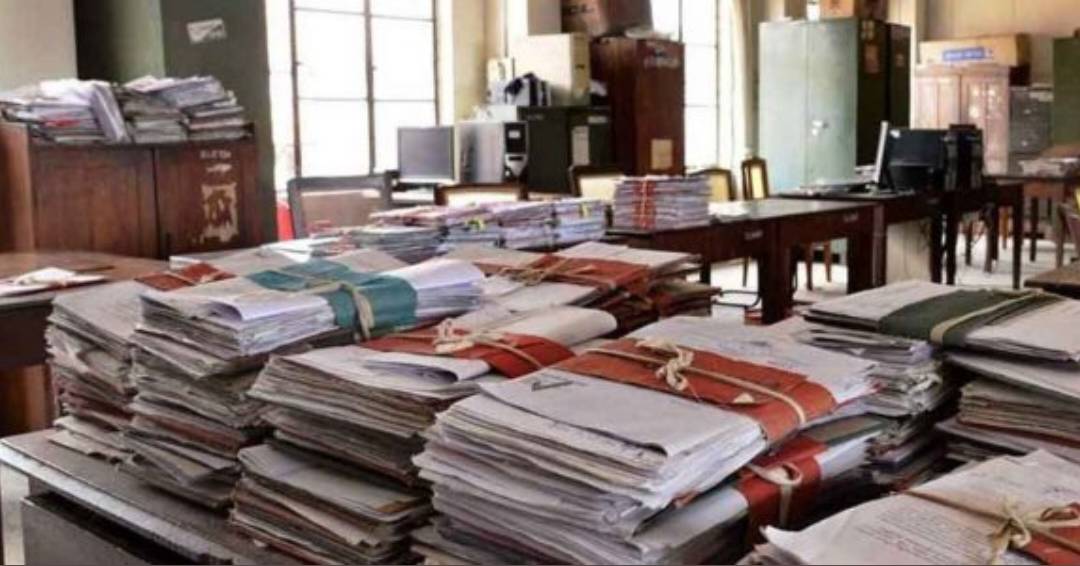
Kerala Government Removes Requirement of Citizens to Seek Pardon for Application Delays
The Kerala government’s administrative machinery has often portrayed citizens’ rights as if they were favors. One such example is the special marriage assistance scheme for financially distressed widows’ daughters in Kerala. If a widow fails to submit the application at least one month before the marriage, she is denied support.
What’s more troublesome is the solution. The Kerala government authorized the land revenue commissioner and the district collector to “pardon” the widow if they find genuine reasons for the delay. However, the poor widow must first submit an application for pardon (‘maappapeksha’) to receive such forgiveness.
This requirement applies not only to widows but to all citizens who experience delays in applying for various welfare assistance programs such as scholarships, pensions, houses under the Life Mission, and even mandatory government records like marriage registration certificates or birth certificates. There is even an application form specifically called the “pardon form.”
These measures have now been withdrawn. The use of words like “pardon me” (‘maappaakkanam/kshemikkanam’) in official communication and the requirement for “pardon” forms have been eliminated.
The Personnel and Administrative Reforms Department (P&ARD) recognized the emotional impact of insisting on “pardon forms.” Additional Chief Secretary A Jayatilak stated in a circular issued on May 17 that it conveys the impression that a simple delay in submitting applications for welfare assistance or official documents is a serious crime.
“To address this issue, the words ‘pardon the delay’ in the application form will be changed to ‘decision on the application without considering the delay’,” the additional chief secretary explained. Furthermore, he emphasized the need to remove words like “pardon” (maappu), “kindly pardon me” (maappakkanam), and “pardon form” (maappapeksha) from application forms, promoting a language that respects citizens’ dignity.
Social activist Boban Mattumantha, based in Palakkad, was the one who brought this issue of official communications to the government’s attention. He argued that forcing citizens in a free democracy to seek pardon from the government for a minor delay in filing an application that is rightfully theirs is not only primitive but also reminiscent of colonial times. He suggested replacing such humiliating words with ones that preserve citizens’ dignity.
Initially, the P&ARD dismissed his argument, considering the requirement for a pardon form as a means to enforce administrative discipline. The office of the P&ARD additional chief secretary wrote to Boban on May 5, 2022, stating that the requirement to submit a pardon form only arises in the case of application delays and can be seen as a directive for citizens to secure their rights in a timely manner.
Unsatisfied with this response, Boban took his case to the Human Rights Commission, arguing that the P&ARD reached its conclusion without consulting language experts. The Human Rights Commission forwarded the complaint to the Official Languages Department under the Kerala Legislative Secretariat, and last November, Boban’s plea returned to the P&ARD with the expert opinion of the Official Languages Department.
Now, a year after initially rejecting Boban’s plea, the P&ARD has realized that a delay in submitting an application is not a serious enough matter to warrant the ceremonial and dramatic act of seeking pardon from the state. “State Pardon” may be suitable for criminals, but it is not appropriate for citizens who seek their rights with a slight delay.
Boban also expressed discomfort with the idea of top officers granting pardons to citizens, stating that only the President of India and the Supreme Court Chief Justice have the authority to grant mercy or pardon. Collectors or other top officers should not be vested with such powers, according

Post Your Comments